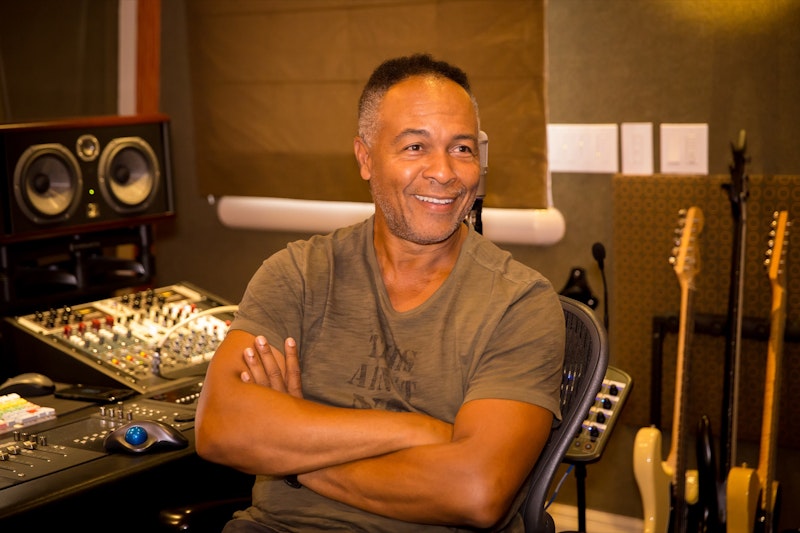Ray Parker, Jr.: I could just do whatever I wanted to do. If you don’t feel like doing it, that means everybody’s salary goes down the tubes.
Don Winslow: But also, there is a quality-of-life issue here, and you know, money is not the only issue.
Parker: I don’t know why. I don’t even understand why it’s an issue.
Winslow: The only way to survive it is to dive into the wave, into its deepest part, and come out the other side.
Parker: Believe it or not, yes. I’ll never forget, a guy drove by and said, “Man, can you play that in my backyard for a party? I’ll give you fifteen dollars.”
•••
Winslow: You know, you look at people you look at relationships, you look at other people you know, you look at people in restaurants and cafés, you sit there and you make up stories about them you hear snatches of conversation; you see little bits of behavior and that finds its way into your work.
Parker: Here’s the interesting thing. Nobody would know it’s you except us.
Winslow: I didn’t want to do like some bad nightclub comic and say, “I am going to try to mimic this guy’s unique style and voice,” and so as a matter of negotiating that, saying can I use some of my own style, my own voice and try to blend it?
Parker: My ex-girlfriend and her friends were Valley Girls from Tujunga. They said [exaggerates] “Ghostbusters!” in their native tongue. Then you got me and I sound like a ghetto kid from Detroit — “Who ya gonna call?” I’m talking like that, and they’re answering like they’re in another country.
Winslow: Oh, man. The language fascinated me, the jargon, the humor.
•••
Parker: You have to be able to be open-minded enough to know that you don’t really know who you are.
Winslow: Oh, sure. It’s still sometimes hard for me to believe or even accept that I make my living at this and that I’m successful at it.
Parker: It was like mass hysteria. I was just… floating through a cloud, just on the ride.
Winslow: Who knows where that came from?
Parker: [laughs] I meet Diana Ross in L.A.

